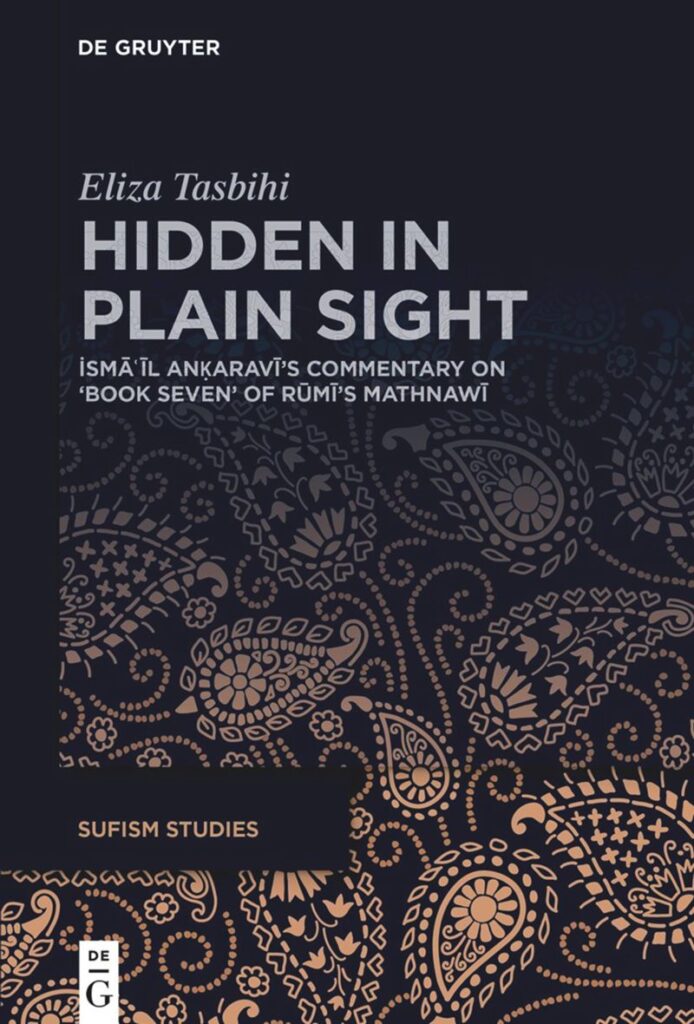We are delighted to announce that second volume in the series Sufism Studies: The Mystical Philosophy of Islam is coming out soon: Eliza Tasbihi, Hidden in Plain Sight: İsmāʿīl Anḳaravī’s commentary on ‘Book Seven’ of Rūmī’s Mathnawī, Hidden in Plain Sight.
The book is an examination of the apocryphal text known as Book Seven of the Mathnawī, attributed to Rūmī, which has never before been studied. Why was this text was added to Rūmī’s Mathnawī? What were its implications in the Mevlevī centers in 17th-century Ottoman society or in Persian speaking societies in India and Iran? The author has located and analyzed different manuscript versions of the text, discusses possible authors and motives behind its composition: Was Book Seven added on the Indian subcontinent or in the Ottoman Empire? One important aspect of the text being interpreted as Book Seven was a great anxiety over whether Rūmī’s Mathnawī had been incomplete, an assumption made by Rūmī’s own son Sulṭān Valad as well as by Sufis in India and the Ottoman lands.
In addition to a literary examination of Book Seven of Rūmī’s Mathnawī, the study also sheds light on religio-political conflicts between various social groups in Ottoman society in which this text played a major role. By examining İsmāʿīl Anqaravī’s (d.1631) introduction on his commentary, which presents a detailed account of his debate with Mevlevī and Khalvetī Sufis and shaykhs, I argue that Anqaravī claimed authority as the ultimate commentator and Mathnawī-reciter among the Mevlevī Sufis, a claim that was bolstered by his closeness to Sultan Murad IV (d. 1049/1640).


